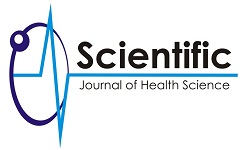Damian Dwi Rahadi1 | Hantoro Ishardyanto2 | Iskandar Ali2 | Willy Sandhika3
1Resident of Surgery, Faculty of Medicine Universitas Airlangga /Dr. Soetomo General Hospital Surabaya
2Staff of the Department of Surgery, Oncology Division, Faculty of Medicine Universitas Airlangga /Dr. Soetomo General Hospital Surabaya
3Staff of the Department of Anatomical Pathology, Faculty of Medicine Universitas Airlangga /Dr. Soetomo General Hospital Surabaya
Abstract
Breast cancer is a malignancy in breast tissue. Breast cancer is the second highest cause of death from cancer in Indonesia. One of the main causes of death in breast cancer is metastatic breast cancer which the 5-year survival rate is only 23.3%. Vitamin D levels and expression of Vitamin D receptors are very important in the process of angiogenesis, especially in endothelial cells of tumor blood vessels. Activation of vitamin D receptors and vitamin D will inhibit the process of neo-angiogenesis thereby reducing the risk of metastasis. Decreased angiogenesis activity can be seen from VEGF-A expression. The research’s design is cross-sectional research. The study was done by immunohistochemical staining of breast cancer tissue of patients with metastatic breast cancer for the expression of vitamin D receptors and VEGF-A. In this study a total of 30 patients. It was obtained 20 people (66.7%) aged <50 years and 10 people (33.3%) aged> 50 years. It was also obtained 4 people (13.3%) with liver metastases, 7 people (23.3%) with contralateral breast metastases, 4 people (13.3%) with pulmonary metastases, and 15 people (50%) with bone metastases. The mean expression of vitamin D receptors was 64.71% ± 12.95% and the mean VEGF-A was 66, 96 % ± 7.72 %. It was found that there was a significant relationship between the expression of vitamin D receptors and VEGF-A (p = 0.05). There is a significant relationship between VDR expression and VEGF-A expression in patients with metastatic breast cancer
Keywords: Metastatic Breast Cancer, Vitamin D receptors, VEGF-A, Breast Cancer

